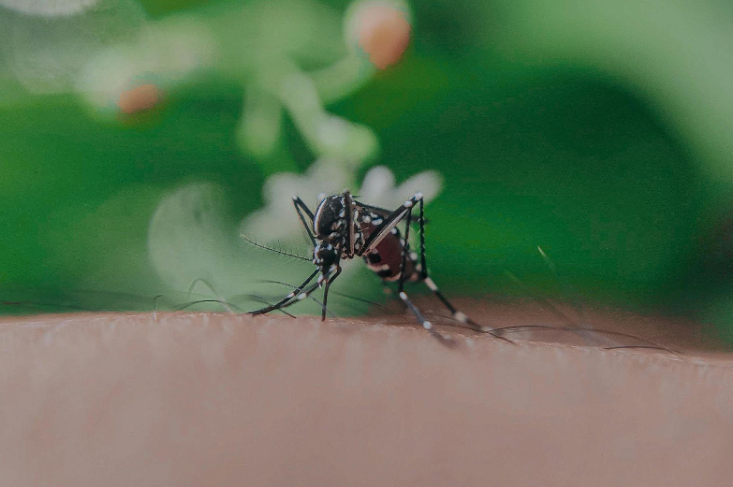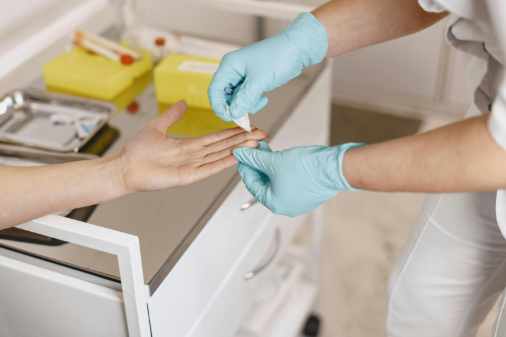Bug Bites, Sunburns, and Rashes: Summer Skin Problems and When to See a Doctor
Bug Bites, Sunburns, and Rashes: Summer Skin Problems and When to See a Doctor

Summer is the perfect season for sunshine, outdoor adventures, and relaxation. While you’re out enjoying the warm weather, though, your skin can sometimes suffer from the effects of the environment. Bug bites, sunburns, and rashes are common issues that pop up during the summer months, and while many can be managed at home, others might require a doctor’s care.
Bug Bites and Their Effects
Bug bites are almost a given during the summer, especially if you’re spending time near water, hiking trails, or even in your backyard. Mosquitoes, ants, spiders, and ticks are just a few of the critters that can leave their mark on your skin. Most bug bites are harmless and cause minor itching, redness, or swelling that clears up on its own within a few days, but not every bite is so innocent. Some bug bites can lead to infections, allergic reactions, or even transmit diseases like Lyme disease or West Nile virus.
If you notice that a bite area becomes increasingly red, swollen, warm, or filled with pus, it could be a sign of infection. Other concerning symptoms include fever, chills, joint pain, or a bullseye-shaped rash, which often requires prompt medical attention. If a bug bite seems to be getting worse instead of better, it’s smart to check in with a doctor.
How to Tell If a Bug Bite Needs Medical Attention
It’s easy to assume a bug bite is no big deal, but certain signs should not be ignored. A bug bite that rapidly enlarges, becomes extremely painful, or starts oozing is a red flag. In rare cases, some individuals can experience a severe allergic reaction, known as anaphylaxis, after an insect sting or bite. Symptoms like difficulty breathing, swelling of the face or throat, dizziness, or a rapid heartbeat require immediate emergency care.
Sometimes, it’s not the bite itself but the lingering symptoms that need a professional look. If swelling persists for more than a few days or you develop a spreading rash, it’s time to schedule an appointment. Early treatment can prevent more serious complications and get you back to enjoying your summer activities sooner.
Why Sunburns Are More Than Just a Red Face
Sunburns are another classic summer skin problem, and they can happen faster than many people realize. Spending just 15 to 30 minutes in direct sun without protection can lead to red, tender skin that may later peel or blister. Most sunburns are mild and heal with proper home care, but more severe burns can cause significant pain, dehydration, and even systemic symptoms like fever and chills.
Repeated sunburns also significantly increase your risk for skin cancer later in life. That’s why it’s so important to protect your skin from the sun’s harmful UV rays with sunscreen, protective clothing, and shade whenever possible. If you end up with a sunburn, keeping the skin cool and moisturized can help ease discomfort and speed healing. However, there are times when a sunburn is serious enough to need medical help.
When a Sunburn Warrants a Doctor’s Visit
Most minor sunburns can be treated at home with cool compresses, aloe vera, and hydration. But if your sunburn covers a large portion of your body, causes intense blistering, or comes with symptoms like severe pain, confusion, nausea, or fainting, it’s time to seek medical care. Severe sunburns can lead to secondary infections if blisters break open, and they can also cause dangerous levels of fluid loss.
Young children, older adults, and people with certain health conditions are more vulnerable to complications from sunburn. If you or someone you’re with develops symptoms that seem out of proportion to the burn itself, don’t hesitate to call a doctor. Early intervention can prevent serious health issues and help you recover more comfortably.
Common Summer Rashes and What Causes Them
Rashes can pop up during summer for many reasons. Heat, sweat, allergens, plants like poison ivy, and even certain bacteria or fungi can all lead to irritated skin. One of the most common summer rashes is heat rash, also known as prickly heat, which happens when sweat gets trapped in clogged pores. This causes small, itchy bumps that can be uncomfortable but usually clear up once the skin cools down.
Another frequent cause of rashes is contact dermatitis. This happens when your skin comes into contact with something irritating or allergenic, like certain plants, sunscreens, or bug sprays. Fungal infections like athlete’s foot or ringworm also tend to thrive in the warm, damp conditions of summer. Although most rashes are mild and go away with over-the-counter treatments or simple self-care, some rashes need a doctor’s attention.
Signs That a Rash Needs Professional Care
A rash that is extremely painful, rapidly spreading, or accompanied by fever should not be ignored. If a rash becomes blistered, starts oozing, or shows signs of infection like redness, warmth, and swelling, it’s time to see a healthcare provider. Certain rashes can also be a sign of underlying infections or allergic reactions that need more than just topical creams to heal.
If you’re unsure what caused a rash or if it doesn’t improve with basic care, a doctor can help identify the problem and recommend the right treatment. Sometimes, rashes that seem simple can actually be symptoms of more serious conditions, like Lyme disease from a tick bite or a staph infection. Getting a professional opinion makes sure you get the right care and prevents more serious health problems down the road.
How to Protect Your Skin During Summer
To keep summer skin problems from occurring, it’s all about getting in front of them with prevention. Wearing insect repellent when you're outdoors can help you avoid bug bites. Using sunscreen with broad-spectrum protection and reapplying it every two hours, or after swimming or sweating, can help you avoid painful sunburns. Staying in the shade during peak sun hours, wearing lightweight, protective clothing, and keeping your skin clean and dry can also go a long way in preventing rashes.
Simple steps like washing off after being outside, especially if you’ve been hiking or gardening, can help remove potential allergens like poison ivy oil before it causes a rash. Keeping an eye out for signs of trouble, like bites that don’t heal, sunburns that are severe, or rashes that spread, can help you catch problems early and get the care you need.
When in Doubt, It’s Better to Be Safe
It’s easy to brush off minor skin irritations, but sometimes what starts small can turn into a bigger issue if left untreated. If you’re ever unsure whether a skin problem needs medical attention, it’s always better to play it safe and consult a healthcare provider. Early treatment often leads to quicker recovery and helps prevent complications that can make summer less enjoyable.
Ignoring serious symptoms could also lead to permanent skin damage or systemic infections that are much harder to treat. Summer should be a time of fun, not a time spent battling health issues that could have been caught early. Trust your instincts and seek help if something doesn’t seem right.
Our team at
Bayou Bend Health System is here to help you enjoy your summer to the fullest. If you’re dealing with a stubborn bug bite, a painful sunburn, or a rash that just won’t go away, our experienced team can provide the care you need. Don’t let summer skin problems ruin your plans—contact us today and let us help you stay healthy, comfortable, and confident all season long.



